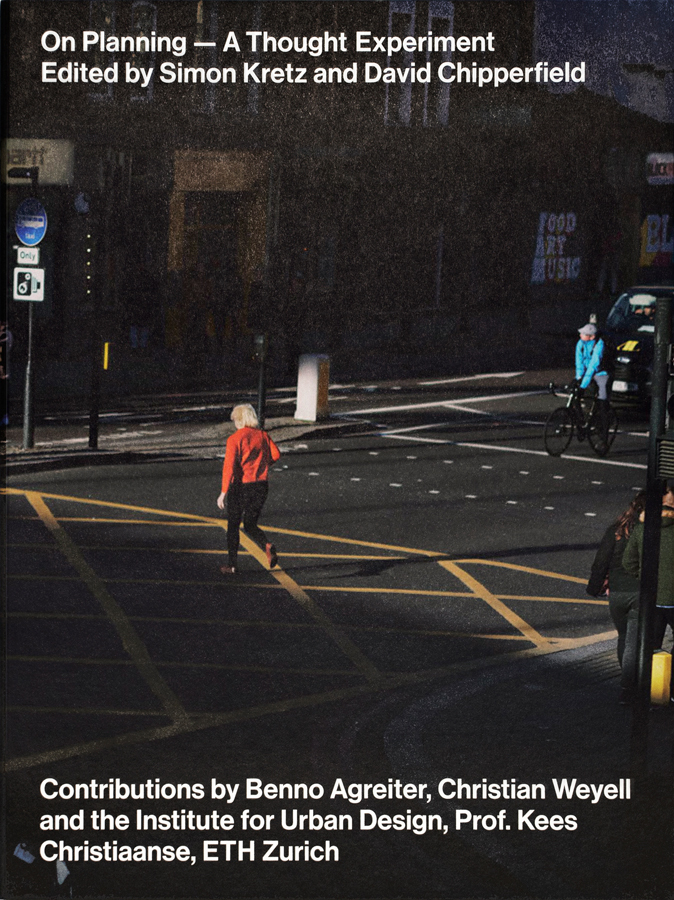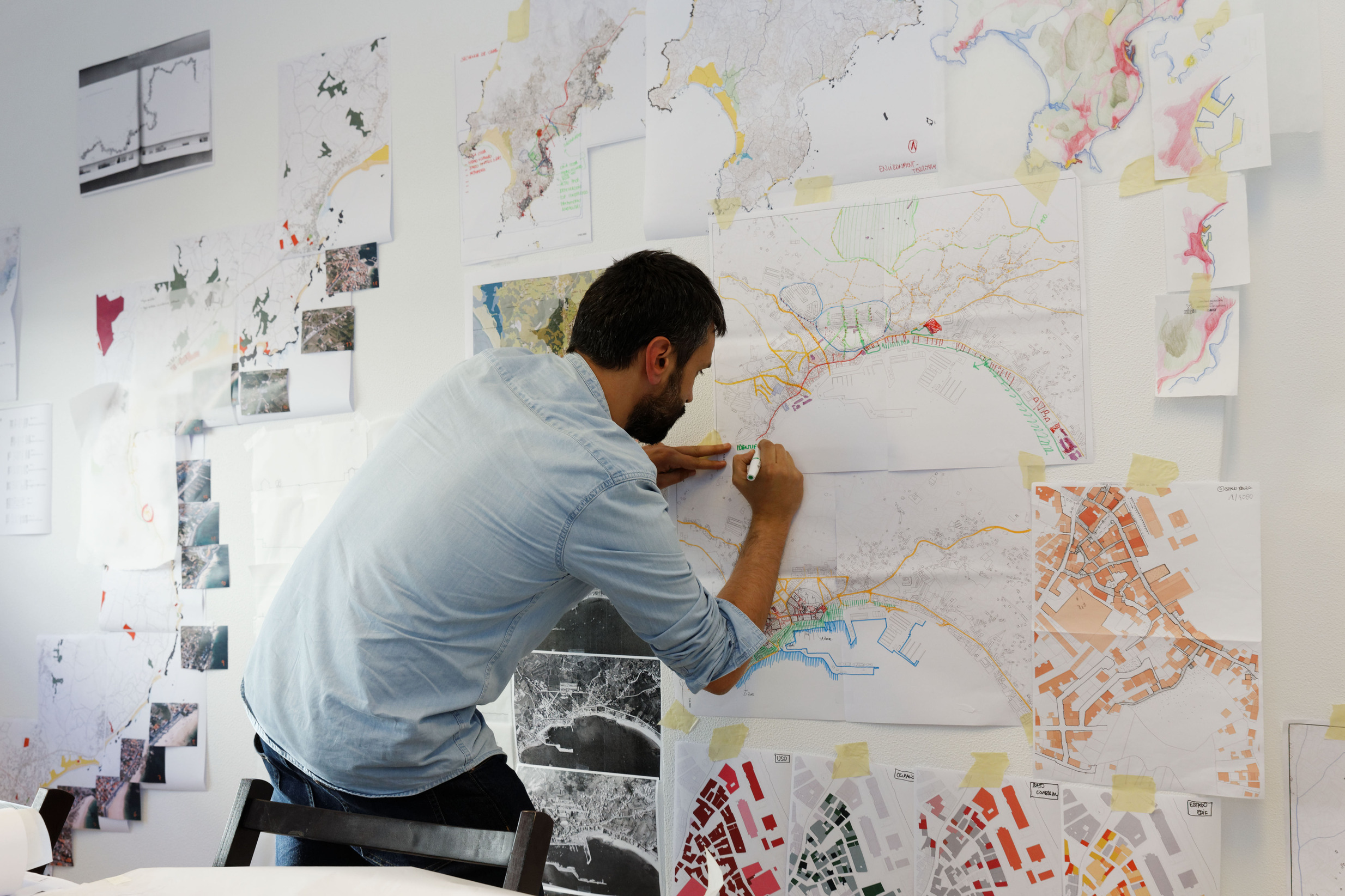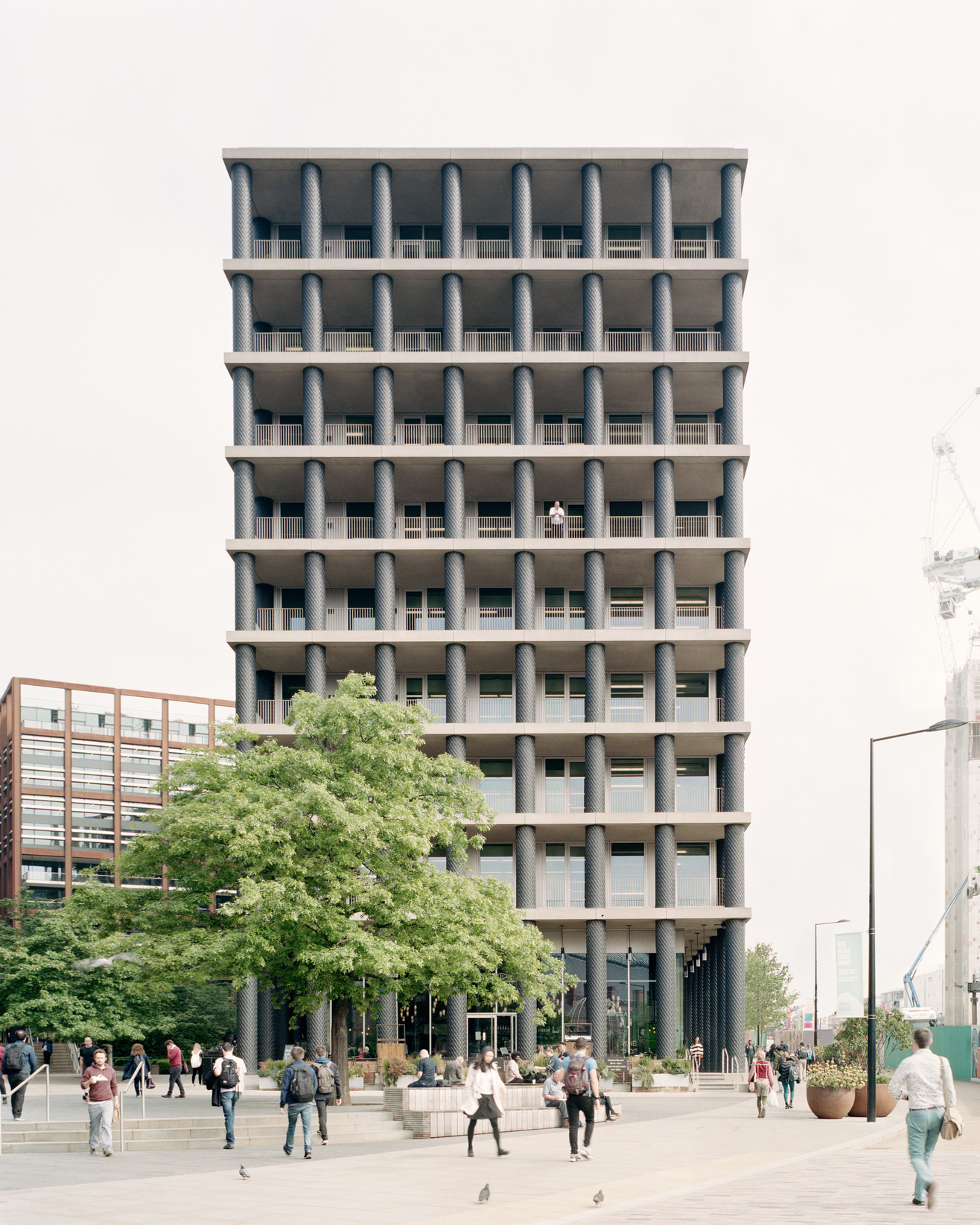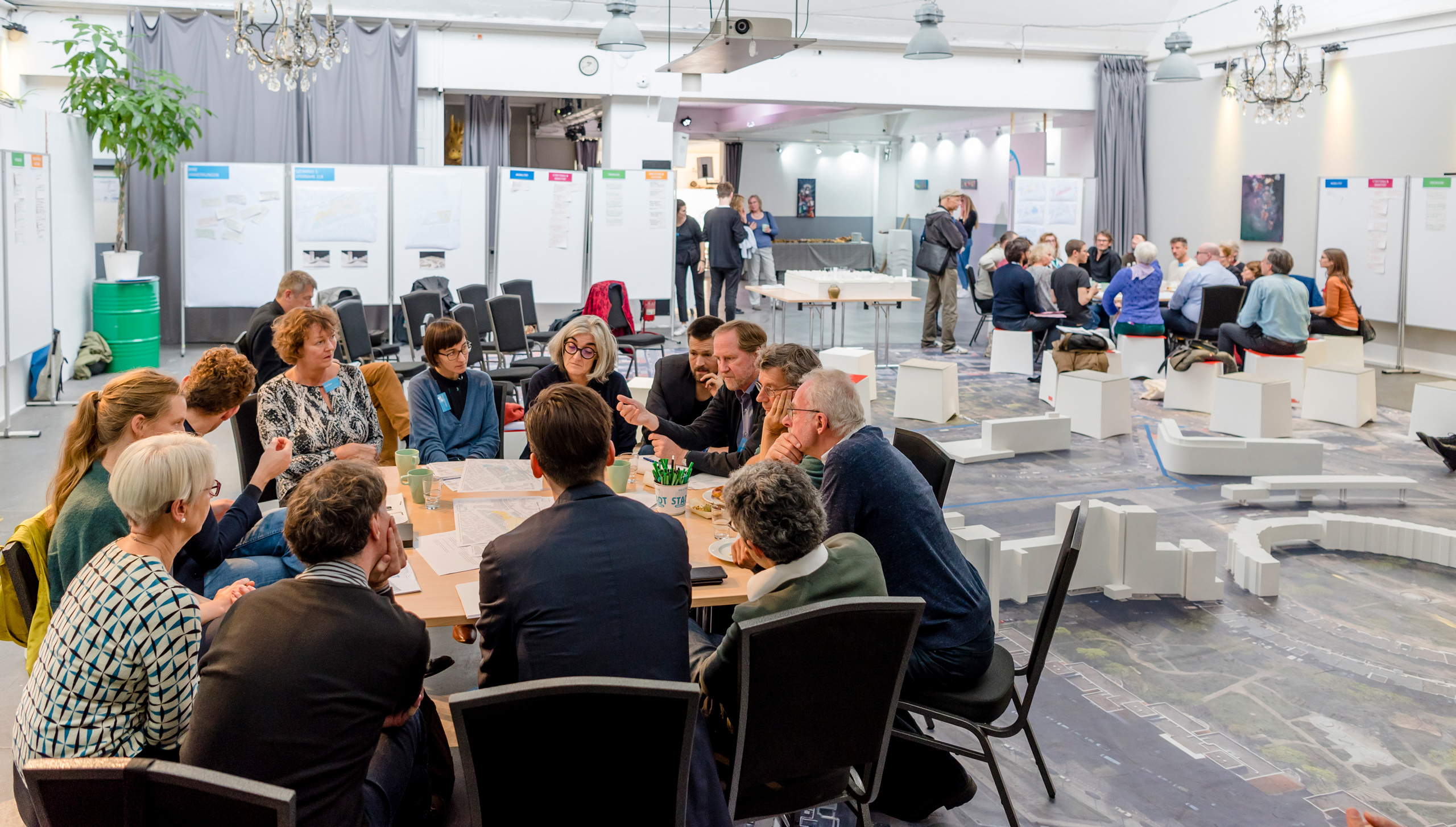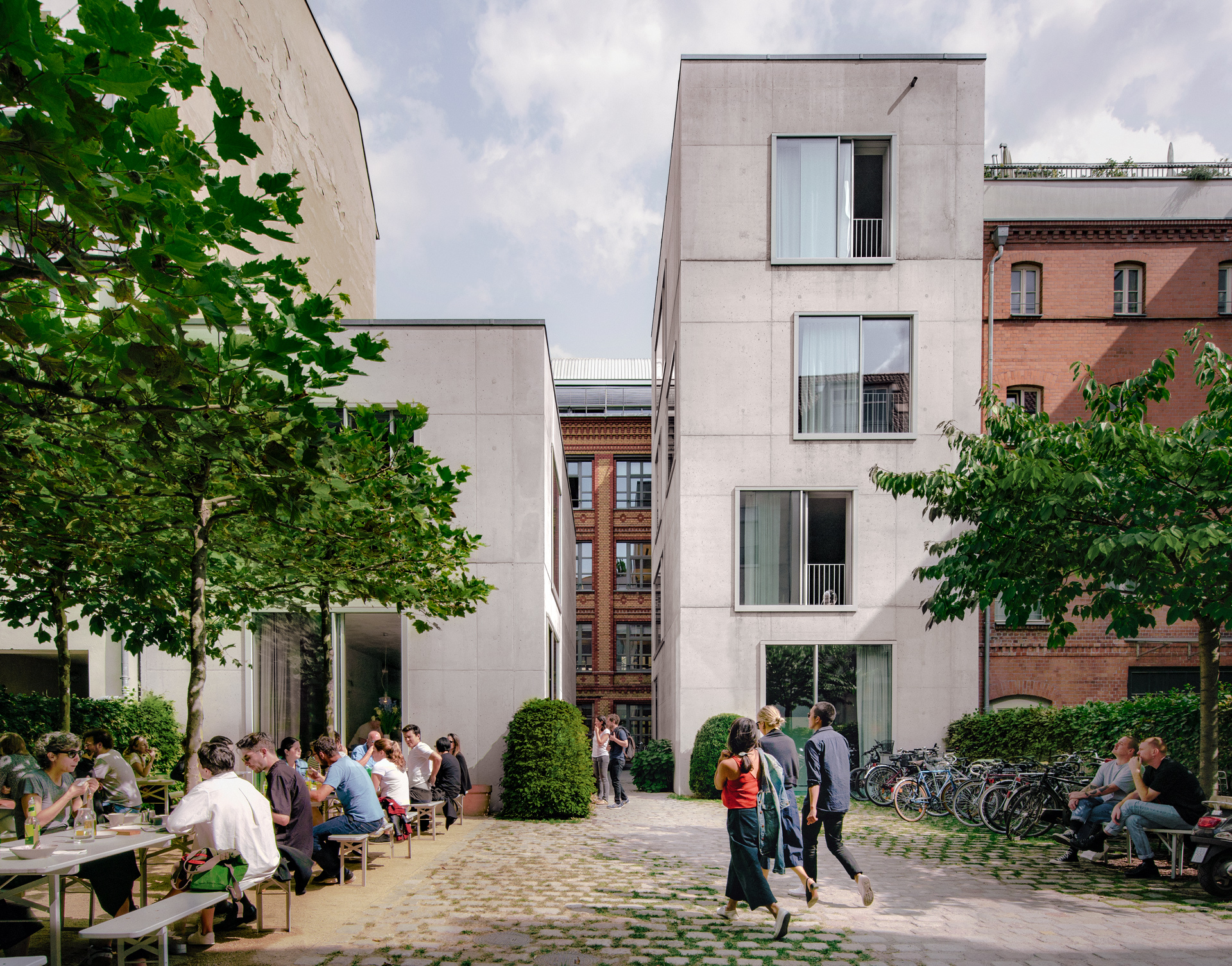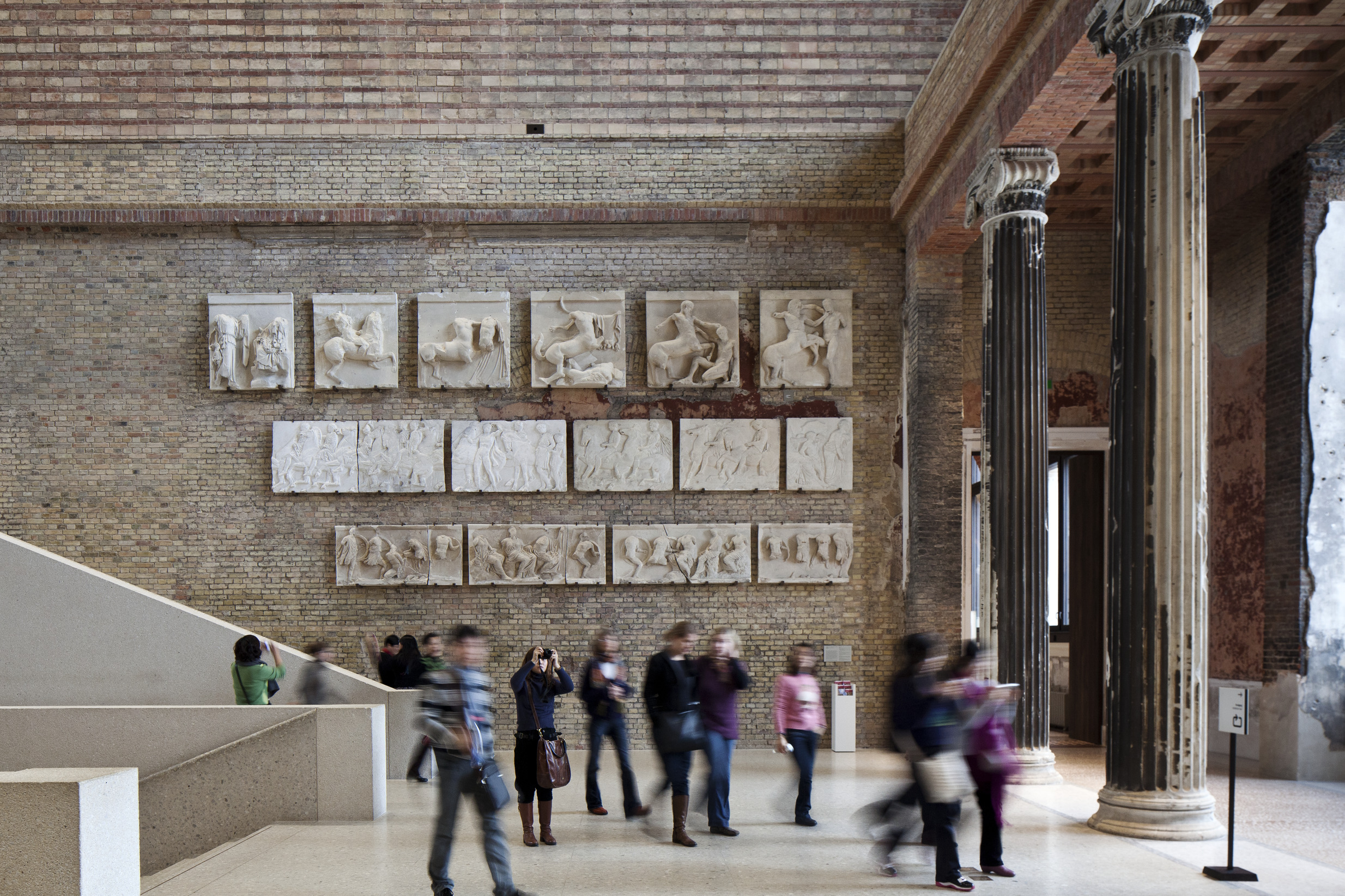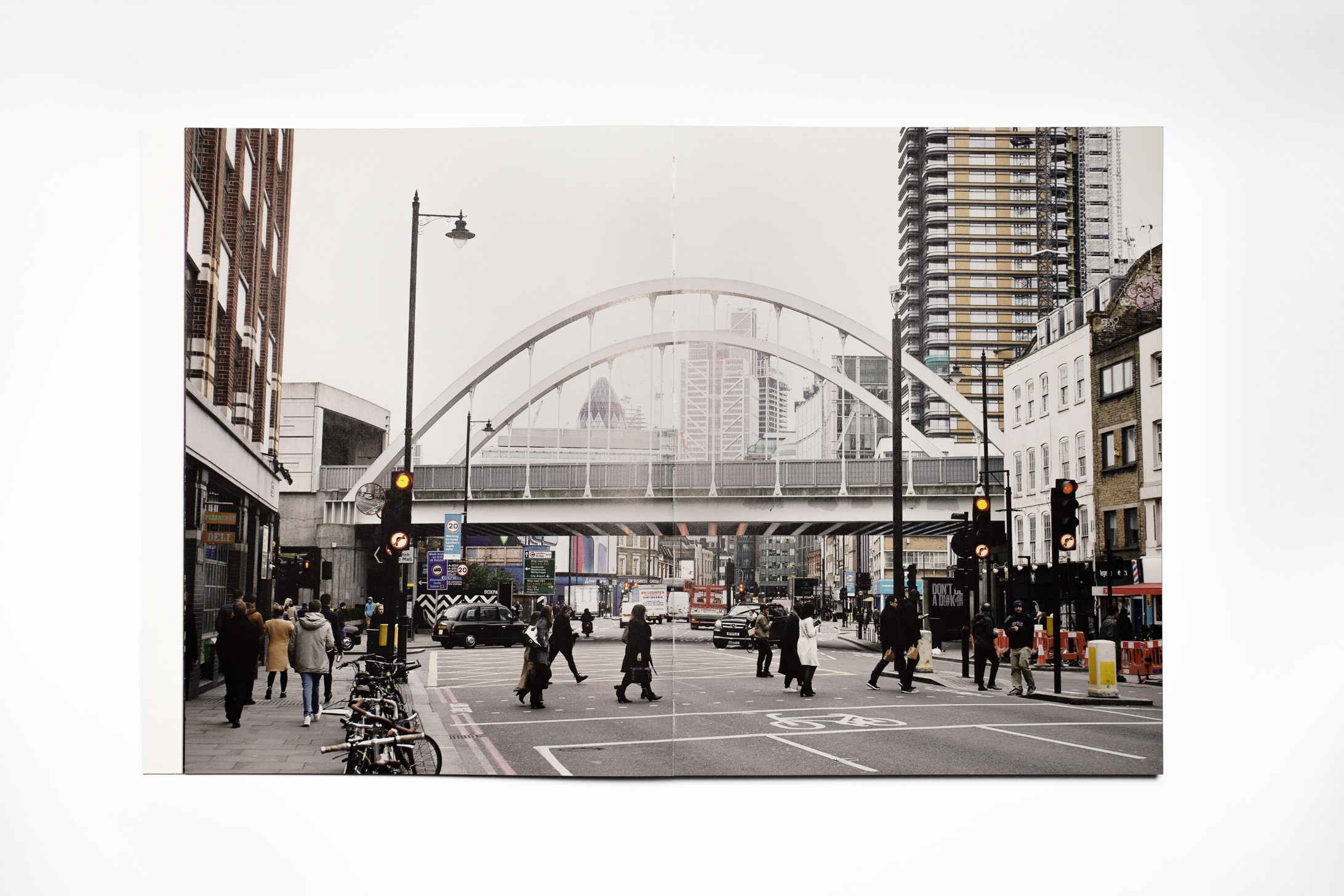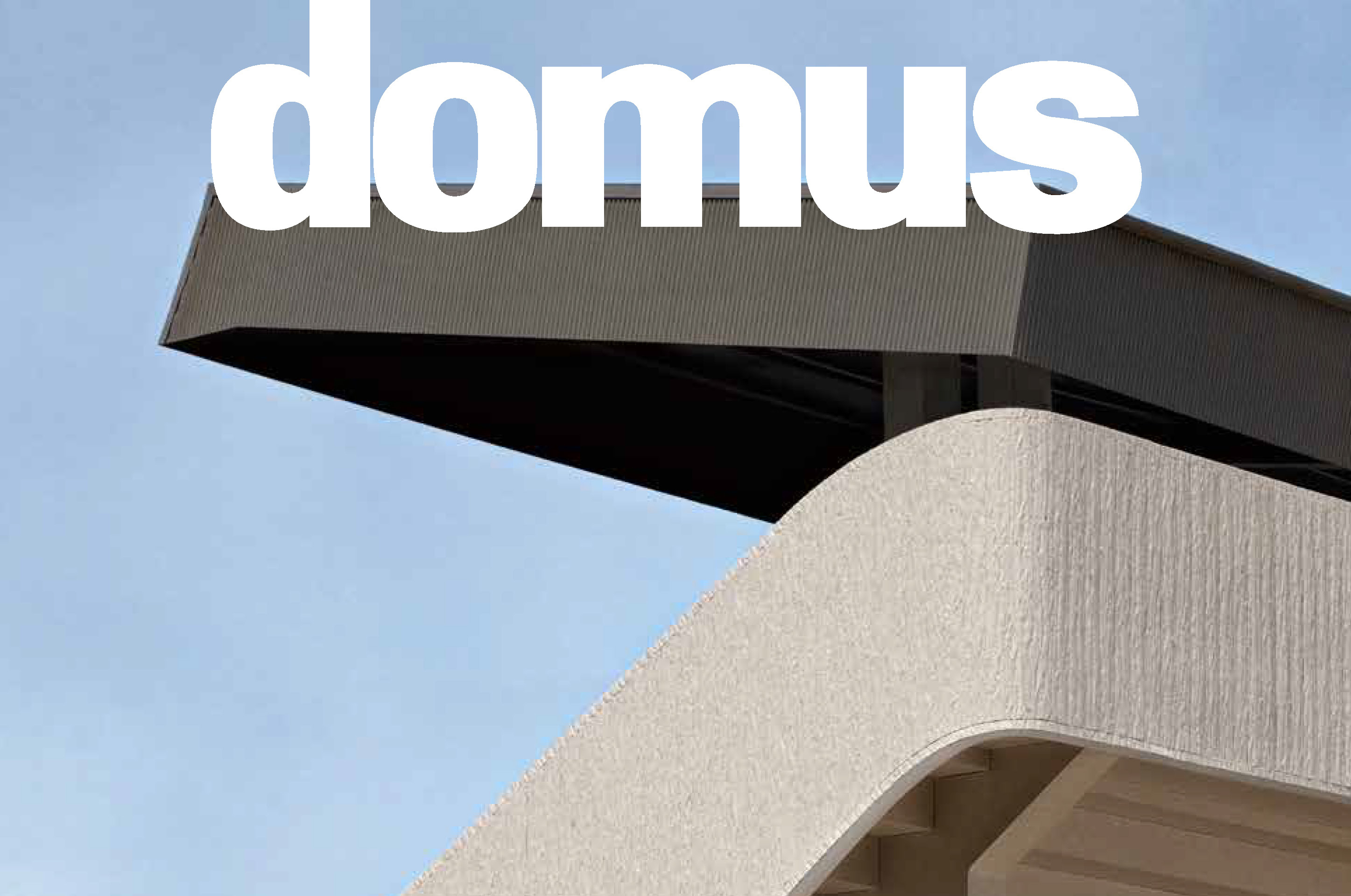Promoting the values of urbanity
David Chipperfield Architects strives to create projects that respond to their surrounding context and conditions, making a positive contribution to the vitality of the cities in which they are located. This often requires thinking beyond the boundaries of a site and the immediate ambitions of the brief in order to elevate the purpose of a project. Such an approach is applied to civic, public, private and commercial project alike, in recognition that a broad range of typologies shape the city and the lives it contains.
One Pancras Square in London sought to demonstrate how a speculative office building could make a civic contribution to the city. Seen from a distance the building asserts its presence through its strong tectonic character. At ground level, the double-height colonnade provides a sheltered area that expands the public space of Pancras Square.
The practice recognises that the context of a site is not solely defined by the physical setting but also the socio-cultural and commercial networks in which it is embedded. It is the role of the architect to ensure that this full understanding of context is integrated within the design process and helps to guide decisions. In the practice’s experience, working within and enhancing the complex ecosystem of the city, rather than imposing a singular vision, leads to more socially sustainable and adaptable structures.
This approach informs projects such as the Bötzow Brewery redevelopment in Berlin and the masterplan for eleven buildings at the Lyon Confluence, where former industrial sites are being reintegrated into the city fabric. Both masterplans seek to preserve or create an ensemble of buildings of varying volumes and characters, positioned to generate a range of internal and external spaces to suit a mixed-use programme and active public realm.

As places of encounter and interaction, public spaces are fundamental to the idea of the city. They foster connection and community while also representing civic values. However, in recent decades urban public spaces have been too often moulded by the residual space between buildings rather than actively designed. In response to this, the practice’s projects often expand the provision of public space, such as in the James Simon Galerie in Berlin, Amorepacific headquarters in Seoul, and Museo Jumex in Mexico City.
The role of urban planning is critical to ensuring that individual architectural projects work together to contribute to the idea of the city, and essential if we are to make them sustainable and climate resilient. Short-term commercial ambitions and a lack of vision have weakened planning processes and regulations. In response to this, the practice advocates for the strengthening of planning resources, greater public participation and inclusivity, and for the coordinated involvement of architects in discussions around policy and regulation.
In 2019, David Chipperfield Architects Berlin teamed up with city planners Urban Catalyst and traffic planners LK Argus to lead discussions with Kreuzberg residents which would inform a feasibility study for Berlin’s new central library in the district. Insights gained during the process formed the basis for further planning and an architectural competition.
In 2017, David Chipperfield embarked on a theoretical study of contemporary urban developments with Simon Kretz (ETH Zurich), resulting in the publication ‘On Planning: A Thought Experiment’ (Koenig, 2017). This research highlights contemporary planning culture and provides a vehicle to discuss the relations between the development of a particular site and the city in its entirety, between urban processes and resulting forms, between active and passive planning, and their political and ethical dimensions. More recently, David Chipperfield has been appointed a Mayor’s Design Advocate, advising the Mayor of London on urban planning processes.
The work of Fundacion RIA in Galicia, northwest Spain, is helping to enrich the practice’s understanding of planning processes within the context of sustainable development. The research team works collaboratively with local communities, academia, industry and regional government to devise integrated urban and rural strategies that will enhance quality of life in the region. While locally focused, the outcomes and lessons of this work relate to global challenges and in turn inform the practice’s design culture.
